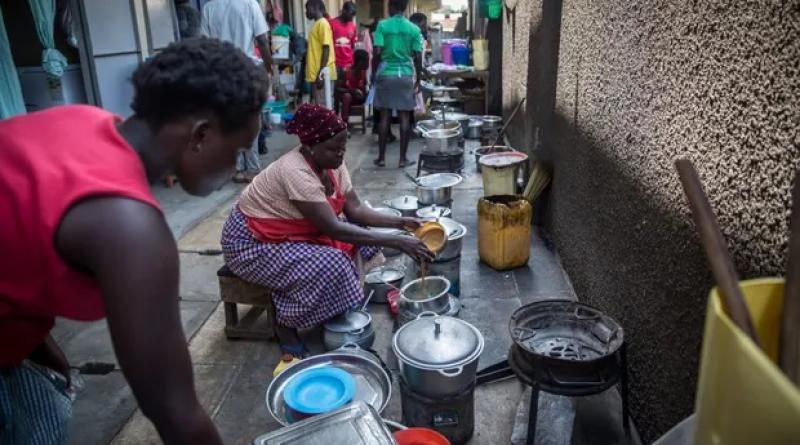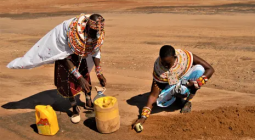She cooks, cleans and cares … so why is a woman in Uganda worth only 20% of divorce assets?

In a potentially precedent-setting case, a Kampala appeal court has penalised a divorcing wife for lacking receipts to prove her value. This must not stand
Without a receipt for all the cooking, cleaning and caring work they have performed, how do women prove their contribution to a marriage if it breaks down?
Until November, that was not a question that women in Uganda – those like me in paid employment and those who work at home – were too concerned about. Courts typically ruled in divorce cases that assets are split 50/50.
But last year, an appeal court in Kampala overturned a high-court divorce case ruling which gave a couple an equal share of the matrimonial home. The court decided that the woman, who did most of the housework, only deserved 20% of the assets. While the man in this case had receipts to show how much he’d paid to build and maintain the house, the woman had none.
The wife argued that she cared for the couple’s four children and ensured the family’s wellbeing. When the family house was being built, she cooked for builders and supervised construction. While the court acknowledged her contribution to the marriage, it said the “man’s contribution, evidenced by receipts and invoices, was bigger and therefore deserved [an] 80% share”.
This ruling sets a bad precedent and rolls back years of hard work to recognise unpaid care work. It values a moneymaker over a homemaker and exposes the law’s failure to address the systemic discrimination of women in Uganda.
I agree with the principle in law that marriage does not give a spouse an automatic half-share in the marital home and that any split is dependent on his or her contribution. It remains problematic, however, that it is left to the judge’s discretion to determine the value of a woman’s non-monetary contribution.
The worry now is that judges in lower courts could totally disregard women’s non-monetary contribution in future divorce cases. Most women cannot afford to pay legal fees to appeal against such decisions.
Since November’s ruling, my organisation, the Women’s Probono Initiative, has received a number of calls from women whose divorce cases we are currently handling, all concerned about the implications. They worry they will walk away with nothing.
The scales are already tilted against women, still viewed as property in many communities across Uganda. The constitution views women as equal in dignity and rights, but this is just on paper.
Many girls today are still exchanged for gifts in marriage, and many lack a basic education. Women spend on average 10 hours a week more than men on unpaid domestic work: labour that frees up men to engage in money-generating economic activities. Collecting fuel and water, and looking after children and elderly relatives are never captured in national statistics.
There has been some progress in women’s legal rights. The succession law now guarantees a surviving spouse a 50% share of the estates of a deceased partner, up from 15% – a positive step that protects women and allows them to remain in their homes when they are widowed.
But a lot remains to be done to protect divorcing women. We need to update the Uganda Divorce Act, enacted in 1904. Although periodically amended by case law, it has never had a comprehensive overhaul.
We need to pass the Marriage Bill, which acknowledges care contributions to a home and provides mechanisms for quantifying that in monetary terms when a marriage fails.
No one enters marriage with the aim of getting divorced or enriching themselves when the dissolution bell rings. If things do not work out, dignity for both parties at the exit is important. More effort is needed to get unpaid care recognised.
Primah Kwagala is a human rights lawyer and executive director of the Women’s Probono Initiative in Uganda.
COVER PHOTO: Women cook outside in Gulu, northern Uganda. The value of their labour is rarely counted in monetary terms. Photograph: Sally Hayden/LightRocket/Getty Images





